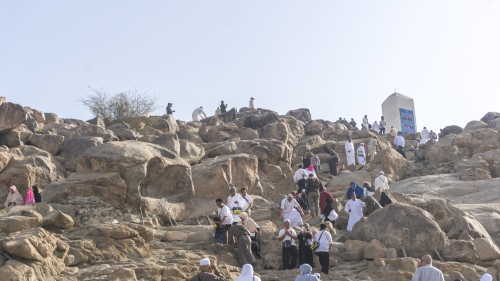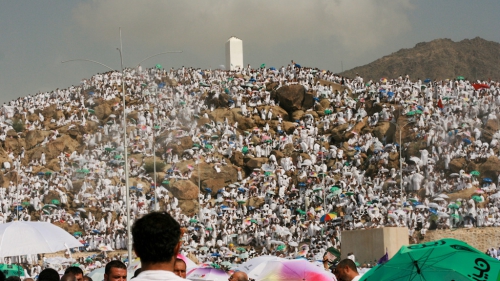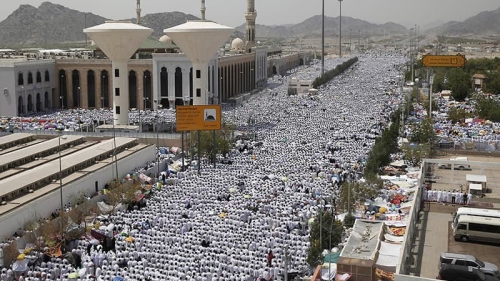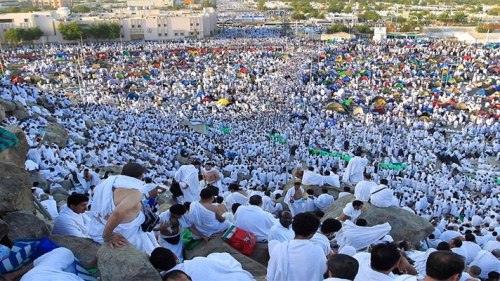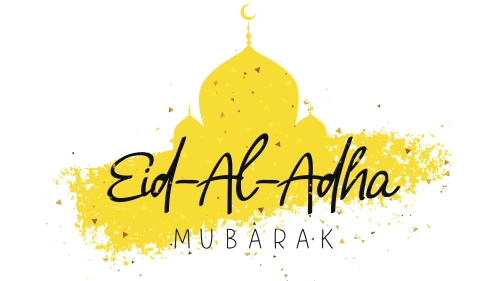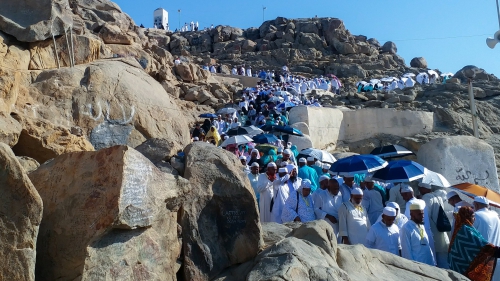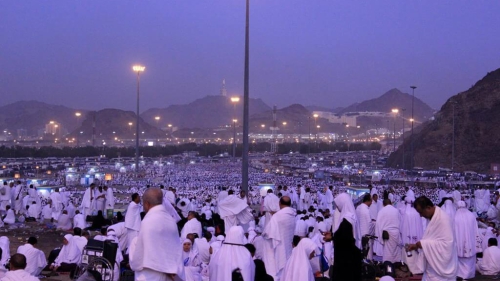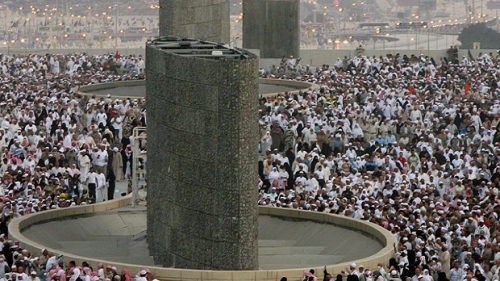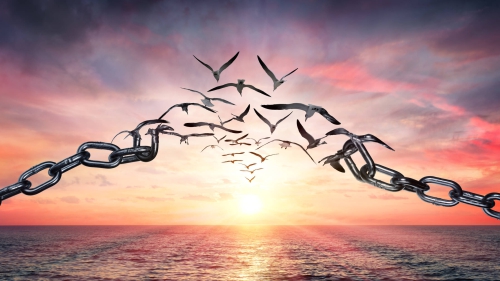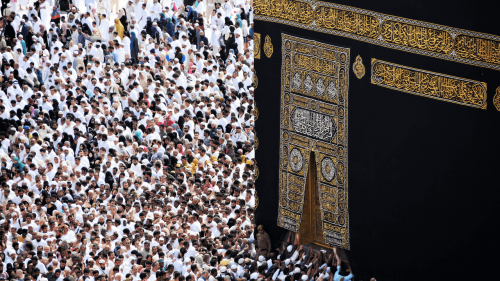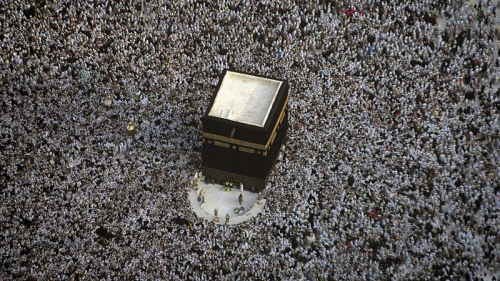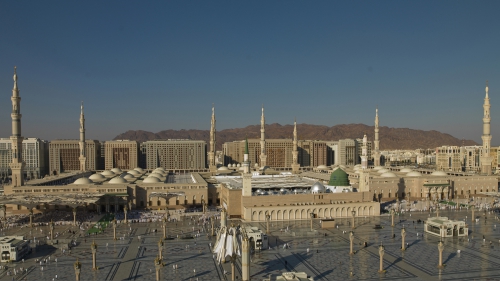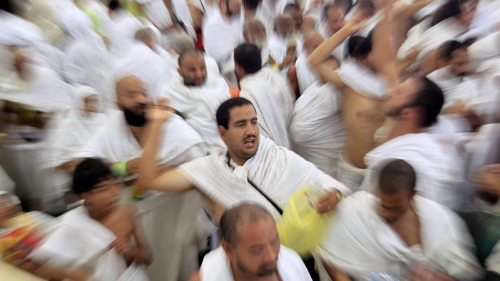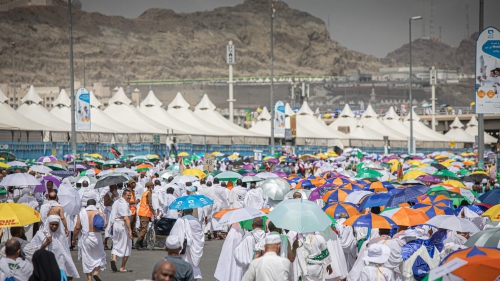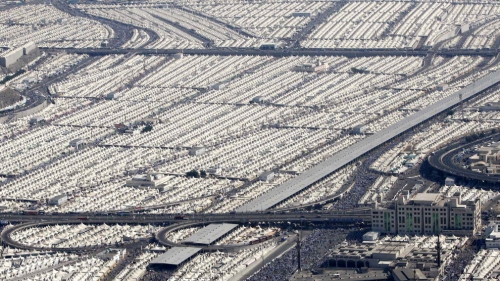Unusual Eids in Unprecedented Times
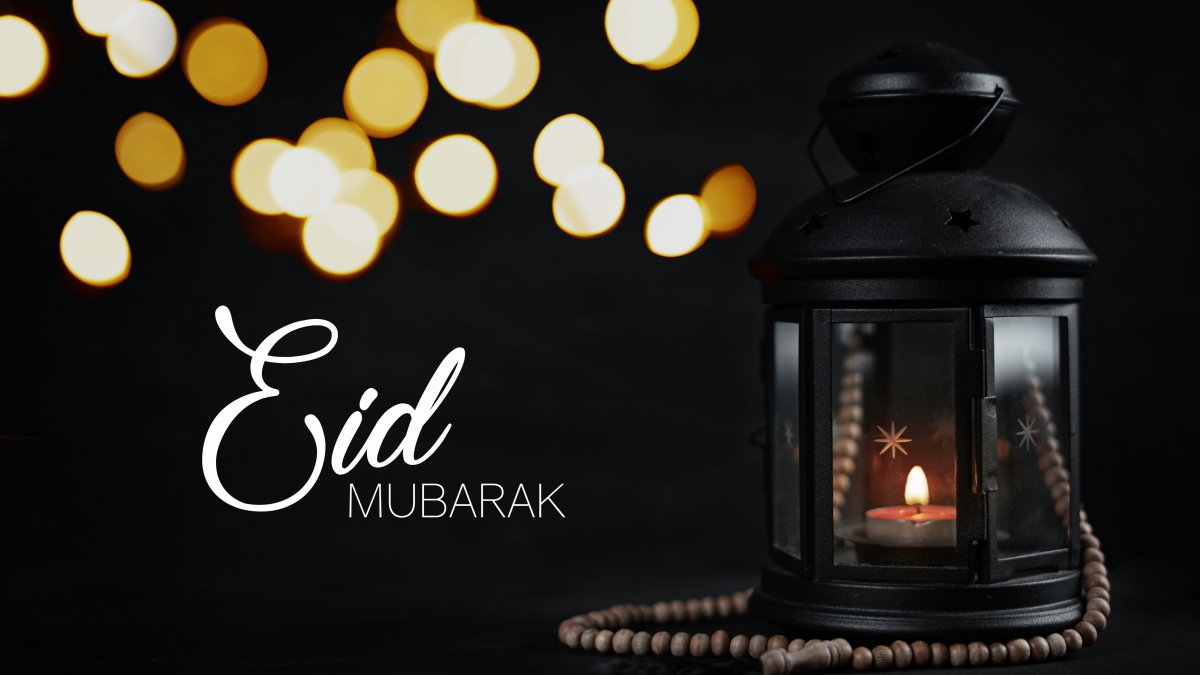 {file:content.php} {function:blp_getCustomField} {postID:56095} {customField:theClapCount} {default:0}not-in-use-in-plain-child
{file:content.php} {function:blp_getCustomField} {postID:56095} {customField:theClapCount} {default:0}not-in-use-in-plain-child



We emerged from an uncustomary Ramadan, at a time when our daily lives seemed to be on hold, our usual activities suspended and much of our society in lockdown. We are now celebrating ‘Eid-ul-Adha and the world still seems most unfamiliar, a world that will probably never be the same.
We celebrated ‘Eid-ul-Fitr without congregation, without embracing friends, without family feasting, without social visiting; most unusual indeed. Here we are, at ‘Eid-ul-Adha. It makes us realize how much we took for granted without really having appreciated what we always had. Due to the lockdown and social distancing, it often seems as if we are going through this trial alone, but we are not. We are all in this together – separated in our homes – but united in our shared experience of isolation and in our common objective of surviving and overcoming this unprecedented challenge.
Seclusion & Isolation
The last ten days of every Ramadan invite us to i’tikaf, where some worshipers usually enter voluntary self-seclusion in the mosque; and this Ramadaan we were all in state-enforced isolation at home. Seclusion was often experienced during significant phases in the lives of the righteous and the Prophets (peace be upon them). Prophet Yunus was in the darkness of the ocean, after which he found eventual relief. Prophet Yusuf was in the well as a boy when he was saved and was later in the prison of the ruler of Egypt, from which he earned his freedom. Mary was in the mihrab (niche of the mosque) as a child where she was spiritually nurtured. Later in life, she was ostracized when pregnant with the Messiah, and found relief under the tree. The People of the Cave (As-habul Kahf) were righteous youth who found safety in the cave, emerging at the time of safety. Haajar lived sheltered with her baby Ismail in Makkah. Prophet Muhammad; besides being isolated through boycott for three years, received the first revelation while secluded in the Cave of Hira, and later sought refuge in the Cave of Thawr until danger elapsed. Each of these exemplary people pondered on their situation and endured either the trial of seclusion or the pain of isolation; all with faith in their hearts and hope in their minds. They imbibed the Qur’anic directive ... never lose hope in the spirit of relief from Allah [12:88].
Hajj, Haajar, and Black Lives Matter
This pandemic has evoked a tremendous degree of introspection. Part of our effort at aiming to be the best we can be is to ponder how we may repair what we, as human society, may have damaged. Between ‘Eid-ul-Fitr and ‘Eid-ul-Adha, we have witnessed blatant incidents that have highlighted the preponderance of racist and gender-based violence. As we are about to celebrate ‘Eid-ul-Adha; a celebration that follows the hajj pilgrimage, we are cognizant of the fact that the hajj re-enacts some of the fundamental aspects of our history as experienced by key figures in our tradition. Among the significant personalities in our legacy is that of Haajar, who was a model of resilience, of moral excellence, and selfless commitment. When pilgrims run the sa’i between the hills of Safaa and Marwah, they are simulating the running of Haajar, whose selfless search for water for her son was considered worthy enough by Allah to be incorporated as part of the hajj. A former slave, black woman, the wife of Prophet Abraham, the mother of Prophet Ishmael (forefather of Prophet Muhammad - peace be upon them); Haajar is indeed a symbol of resistance against racism and chauvinism.
Egalitarian Message
It was from her progeny, that came Prophet Muhammad (PBUH), who upon performance of his pilgrimage, delivered his historic final public address, the Khutba-tul-Widaa.’ It was a universal message wherein he recapped the essence of his mission that he delivered during hajj on Mount ‘Arafah on 9th Dhul-Hijjah 10A.H. /632 C.E. In keeping with the spirit of Hajj; supporting the Black Lives Matter movement, protesting police brutality and opposing systemic racism is a perpetuation of the revolutionary egalitarian message that Prophet Muhammad espoused at his farewell Sermon over 1,400 years ago.
Lessons learnt
So as we hope for a world free of prejudice in the long term, we are certainly in eager anticipation of a swift end to the restrictions imposed by the pandemic; but with that ending, will there be a new beginning? When an ending becomes an end in itself, it may prevent the possibility of a new beginning and learning from what had ended. Learning perchance to appreciate our health, to value our freedom, to celebrate our society, to acknowledge our common humanity and to treasure so many things that we took for granted.
Prayer magnifies hope
As we endure this distancing and isolation; experiencing an intense sense of helplessness, a fear of being infected, the pain of losing a loved one, the uncertainty of where this pandemic may lead; all these have motivated us to intensify our reliance upon the divine, and increase our need to pray. We realize that prayer is harbinger of hopefulness, and the human potential for hope is an essential antidote to the despair, helplessness, and anxiety that many may feel through these uncertain times. Earnest prayer has the potential to magnify our hope; enhancing realistic expectation that something good will eventually happen, if we faithfully and positively continue doing the best we can.
Eid supplication
At the majestic time of ‘Eid, where takbirs would normally reverberate melodiously in our mosques, stirring the souls of those who are engaged in congregational zikr; we sit with our families in the confines of our home, yet chanting the greatness of the Almighty. We beseech Allah to grant us patience for our distress, resolve to overcome our helplessness, cure for our sickness, strength for our weakness, forgiveness for our sinfulness, relief from our stress, calmness for our restlessness, and contentment for our happiness. We entreat Allah for the healing of those affected and implore His mercy for those who have passed on. We pray that this crisis will end, that lives and livelihoods will be spared and that we emerge from this as better human beings; committed to creating a better world for all.
‘Eid Mubarak!
Topics: Black Lives Matter, Coronavirus, Day Of Arafah, Eid Al-Adha, Pandemic Channel: Hajj - Day 3, Hajj - Day 4, Hajj - Day 5
Views:1201
Related Suggestions
In accordance with Title 17 U.S.C. Section 107, and such (and all) material on this site is distributed without profit to those who have expressed a prior interest in receiving the included information for research and educational purposes.



